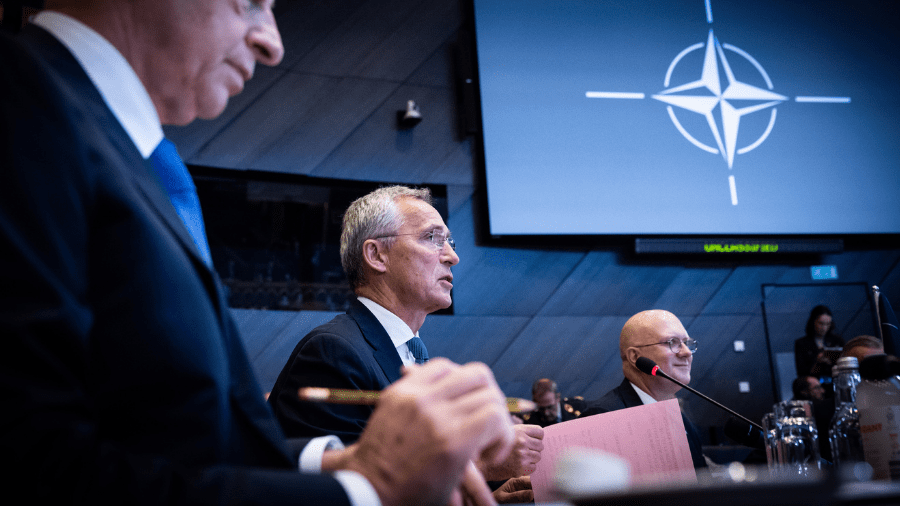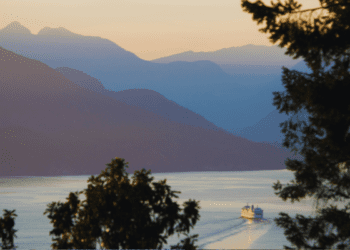This article is part of the Konrad-Adenauer-Stiftung Transatlantic Futures 2030.
By Alexander Lanoszka, October 23, 2023
Over 600 days have passed since German Chancellor Olaf Scholz gave a landmark speech to the Bundestag wherein he declared that Russia’s large-scale invasion of Ukraine has occasioned a Zeitenwende. Imperfectly translated into English as “a turning of the times”, the Zeitenwende necessitated a dramatic change in Germany’s foreign and defence policies, with Scholz announcing the creation of a €100 billion fund dedicated to recapitalizing the Bundeswehr (armed forces). More broadly, the Zeitenwende speech has signalled a dramatic change in NATO’s basic approach to the security challenge posed by Russia. Containment had effectively become NATO’s strategy following years of attempted compromise and appeasement.
Has there really been a Zeitenwende in the time that has passed since Scholz’s address? Certainly, in those early and heady days when columns of Russian tanks were still advancing on Kyiv, a massive change seemed afoot within the alliance. Political leaders across NATO countries were issuing a flurry of policy statements against Russia’s aggression and reaffirming Ukraine’s territorial integrity. Yet, with some distance, one can better assess whether the dramatic transformation that the term Zeitenwende invokes really took place in 2022.
The answer, as ever, is ‘it depends.’ Such hedging may seem to dodge the question, but it is nevertheless appropriate when thinking about how Russia’s 2022 invasion of Ukraine has affected NATO.
The positive case that Zeitenwende did take place has much going for it. Germany and its NATO partners did make significant policy choices that will have lasting effects. That Germany provided large quantities of lethal military equipment to Ukraine is the most obvious manifestation of the alliance’s new, more assertive approach. Between 2014 and 2021, Germany offered only token military support. The 5,000 helmets and military field hospital that Germany gave Ukraine, with the latter largely produced by Estonia, underwhelmed many observers. By contrast, through 2022 and early 2023, Germany provided a besieged Ukraine with MARS 270 Multiple Launch Rocket System (MLRS), PZH 2000 Howitzers, Gepard anti-aircraft guns, IRIS-T air defence systems and even Leopard 2A6 tanks.
Of course, negotiations to provide military assistance to Ukraine were tortuous and involved much protracted bargaining that ultimately came at the expense of Ukrainian lives. The German ship-of-state prioritizes stability over speed and, like a massive container ship at sea, it takes a long time to shift course. Yet the fact remains that Germany has gone from one of Ukraine’s most miserly partners to one of its most generous. German air defence systems have proven crucial to the relief of Ukrainian cities against the onslaught of Russia’s aerial assaults. Critically, German arms maker Rheinmetall recently announced that it will build and repair tanks in Ukraine in partnership with the state-owned Ukroboronprom, thus helping to ensure that country’s long-term defence prospects.
NATO itself has also seen major changes since the start of 2022. The most visible change was the addition of Finland to its ranks, with Sweden likely to follow. Historically, both countries had strategic cultures that placed an emphasis on maintaining neutrality between NATO and Russia, at least officially. Their decision to join the alliance thus upended long-standing tradition. From NATO’s perspective, their inclusion takes much of the guesswork out of planning for a contingency in the Baltic region that could involve, particularly thanks to the presence of Finland (and eventually Sweden) on the North Atlantic Council.
Other changes are worth highlighting. The shock and outrage provoked by Russia’s brutal aggression towards Ukraine has led to an uptick of defence spending across the alliance. New battlegroups came into formation in the Czech Republic, Hungary, Romania, and Slovakia while pledging to expand those already in place in Estonia, Latvia, Lithuania, and Poland into brigades. NATO members are now finally making moves to acquire capabilities that they arguably should have nurtured years ago. For example, Latvia and Estonia are now cooperating on procuring air defence systems, while Romania and Bulgaria are looking to rebuild their navies and coastal defences. Ammunition production, so long neglected, has finally become a priority for defence establishments in Europe and the United States. Finally, although these policy changes are taking place at the national and European Union levels, NATO members have made major strides in curbing their dependency on Russian energy.
These changes do indeed point to a turning of the times that Zeitenwende evokes. Nevertheless, as there are reasons to think that it is easy to exaggerate how things have changed for NATO. Taking a longer-term perspective, from 2014 onwards, defence budgets were already rising across the alliance, partly because of the regional security challenge that Russia now posed following its seizure of Crimea and destabilization of the Donbas region. The 2016 NATO Warsaw Summit might be the most consequential meeting that the alliance has held since Russia’s first incursions into Ukraine. The members first agreed to put multinational battalion-sized battlegroups in Poland and the Baltic countries at the Warsaw Summit, setting the precedent for the deployment of subsequent battlegroups, in 2022 and beyond. Though their decision to formally join NATO had much symbolic meaning, Sweden and Finland had already cultivated high levels of defence cooperation with many members of the alliance, especially after 2014.
Some of the more positive aspects of the Zeitenwende can also be overstated. Although NATO members have pledged and delivered to Ukraine significant military assistance, they are still withholding key long-range systems like the U.S.-made Army Tactical Missile System (ATACMS) and the German/Swedish-made Taurus cruise missiles. The criticism that NATO members have given Ukraine enough to survive but not enough to win is not unfounded. The Government of Canada, for example, has not negotiated new contracts for ammunition production despite the fact that Ukraine is, for all intents and purposes, fighting an artillery war. Canada, along with other allies, will struggle to turn its battlegroup from a battalion to a brigade. Ironically, Germany has left the €100 billion defence fund that Scholz announced over 600 days ago largely unspent. Structural constraints created by years of underinvestment still hinder Germany’s ability to meet its defence spending targets.
These observations suggest that the changes that NATO made in 2022 were mostly differences in scale rather than in kind. Whether these developments truly reflect a Zeitenwende may be beside the point, considering that the alliance has such a large and diverse membership. Because its own founding treaty reflects Westphalian principles of sovereignty, NATO is constitutionally unable to go about radical change, especially in such a short time. The positive achievements thus merit acclaim. However, so long as Russia is present in Ukraine and threatens overarching Euro-Atlantic interests, much hard work remains to be done.
Alexander Lanoszka is associate professor in the Department of Political Science at the University of Waterloo and senior fellow at the Macdonald-Laurier Institute. He is the author of Military Alliances in the Twenty-First Century (Polity, 2022).






